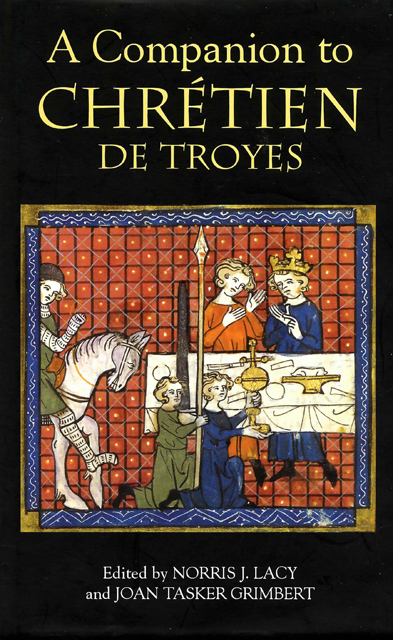6 - The Manuscripts of Chrétien’s Romances
Published online by Cambridge University Press: 23 March 2023
Summary
Any examination of a medieval text should begin with the examination of the manuscripts in which it is preserved. The manuscript is our only means of direct access to the reality of the medieval text and is its only indisputably medieval witness. While we cannot with any measure of certainty reconstruct Chrétien de Troyes's ipsissima verba on the basis of the extant manuscripts of his romances, we can at least be sure that each manuscript was for a period of time in the Middle Ages the text of Chrétien for its owners, readers and listeners. It is unlikely that these individuals (and groups) could have availed themselves of more than one manuscript, and there is little evidence, outside of monastic circles, that medieval readers would have been at all concerned with variants or redactions or establishing a definitive text in anything like the modern sense. The manuscripts of medieval vernacular literature have generally been regarded by modern scholars, however, precisely as material for a critical edition, as Peter Dembowski demonstrates in the following chapter. My aim in this chapter is therefore not to anticipate Dembowski's discussion of the theory and practice of editing as it relates to Chrétien's romances, but rather to give an overview of the physical appearance of the Chrétien manuscript corpus and to suggest what close examination of it can reveal.
I cannot offer an exhaustive survey of the Chrétien manuscripts here, and for that refer readers to The Manuscripts of Chrétien de Troyes. However, by looking at the transmission and codicological context of the individual romances, I hope to discuss most of the significant issues, and treat most of the principal witnesses. With the notable exception of Perceval (fifteen more or less complete manuscripts and some fragments), most of Chrétien's romances are preserved in seven or eight copies and a few fragments. For works which enjoyed the kind of respect they apparently did in the Middle Ages, this is about average. Many texts well known to modern readers are poorly attested (Aucassin et Nicolette, for example in one copy only), while others have come down to us in larger numbers (dozens of the Arthurian prose cycles, and over two hundred of Le Roman de la rose, although this last is rather exceptional).
- Type
- Chapter
- Information
- A Companion to Chrétien de Troyes , pp. 64 - 75Publisher: Boydell & BrewerPrint publication year: 2005
- 1
- Cited by



